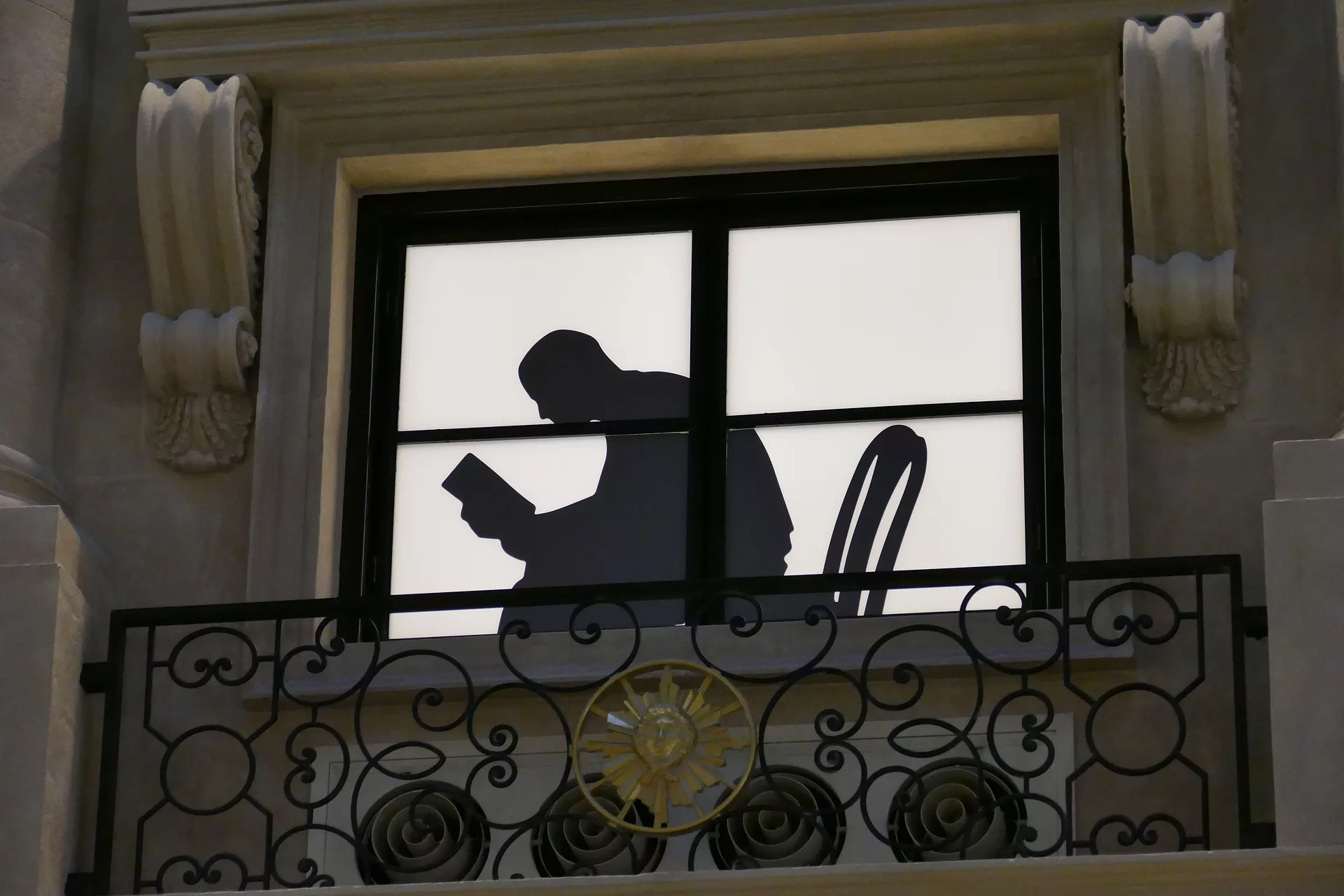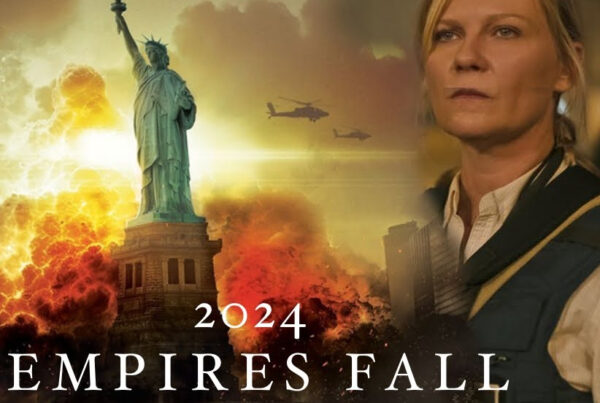It is an undeniable fact that we, especially men who have many external negotiations, are mentally and materially fatigued because we are living in the current, particularly disharmonious social conditions of the modern era. This precariousness is evident just by considering the general economic situation and the extent to which the balance between work and rest has been broken; the personal is political, as it were, and in many workplaces, men can be “cancelled” for the slightest infraction, whether actual or perceived. Such a state is not the natural order of things. As I have said before, all of us should be free to live out our own individualism, so long as our individualism does not infringe upon the individualism of others.
In contrast, the somewhat passive problems of inflation and the promotion of diversity for its own sake, as well as the problems of feminism run amok, radical Marxist ideology, etc. give rise to a number of fundamental societal problems. These are mainly the problems of the way society functions and, tangentially related, the proper distribution of power and wealth, and the attempt to bring human life into line with the material aspects essential to living, which are dominated by money. However, what I deeply doubt is whether the scientific solution to these problems will restore the fatigued, shallow state of mental activity of not only men but of modern man in general. In other words, when such sociological and economic principles are put into practice, there must be in the attitude of human beings towards life a determination to be reborn from the depths of their hearts with a new lease of life.
It is because of this spirit that the state of society has become unnatural from era to era until today, and that we are now imprisoned in the towers built by our own unreflective desires. Because since the time when mankind finally invented writing, the few people who have devoted themselves to life in pursuit of the meaning of human life, who have truly protected and longed for it with unceasing love, have never said that existence for its own sake is a net positive. They were born with a clear vision of what they should aim for, and they knew clearly the internal lightness and heaviness of life. Not one of them would have wanted money to hoard, nor would they have espoused diversity for its own sake, however loosely defined such “diversity” may be, and how vaguely defined the benefits of such forced societal and cultural redistribution may be. To a certain extent, nature, or the interrelationship between natural law and man, has been relaxed, and man’s most childish presumptions and desires have been indulged. But now, these have taken root to such an excessive extent that those who first sowed the seeds – most of humanity – have become bitter and unbearable. I attribute this to the feminization of society: literature, film, advertisements, and even the workplace have become centered around the tastes and preferences of women. This is a decidedly modern phenomenon.
It has come to the point where life will not continue unless we somehow enter into the life of a true individual, unencumbered by these labels and the -isms that accompany them, which have stifled us to the point where we can no longer breathe. If each human being has been given a serious spirit with a heart, he will try to grasp what is true and will not be able to avoid noticing at least some of the errors that have been made. Therefore, almost every free-thinking human being on earth, I believe, is now trying to find a new, more permanent and universal value as a standard of living. On the one hand, I feel that it is natural and, in the larger scheme of things and in my humble opinion, unavoidable that some of us are suffering, tired, and depressed in our lives. Living under these present constraints of feminism and diversity for its own sake is, frankly, exhausting and dehumanizing. On the other hand, I believe that we are facing an important time when we cannot afford to dwell on such matters with the sentimentality and effeminacy of urbanites. I think we are at an important time.
We who wish to preserve the beautiful traditions of the past must somehow get through this turmoil by helping each other, without any petty dogmatic infighting. In this case, it is inevitable that some of us will fall down along the way. In order to fundamentally change our way of thinking, which is that as long as we think about the current political and economic situation in a sensible way and do not overindulge ourselves, our wives, or our children, we should not feel any shame in our own passions. We must look for and seek for clear light and simple wisdom to the best of our abilities. When we go about our lives with single-minded purity and courage, we will never forget the presence of the weary and the weak in our hearts, but we will not block the first hand of our consciousness. The sick are indeed a pitiful sight to behold. But we ourselves must protect ourselves from these manufactured illnesses of modernity as much as possible. We feel and think about the exhaustion of some people as if they were our own, and even if we try to improve their condition, the true way is to try to be as healthy as possible, and, indeed, to be a source of deep joy in our lives.
The world is undergoing major movements and changes everywhere, and this state of affairs cannot possibly be expected to subside anytime soon. After the advent of the internet, world literature changed enormously, and in every developed nation this also marked a turning point in the history of literature.
What kind of literature will emerge from the contemporary upheavals felt in the air we breathe from today to tomorrow? And what literature will emerge from the ebb and flow of modernity felt in the air we breathe from today to tomorrow, and how will we ourselves change and grow during the next few years of intense life? It is not so much that literature itself is in turmoil, but the turmoil in the attitudes of those engaged in literature towards it, which is very noticeable these days and which arouses a certain uneasiness in the hearts of those who love literature.
Various people are talking about various things, and the new regime gives the impression that something special will suddenly appear in the form of literature, and those who have always loved literature because they thought it was generally like this may feel at a loss as if they have to draw it out in a different way. The history of literature has shown that writers of both prose and poetry have a long history of writing about the past.
Throughout history, literature has been interpreted in various ways at various times, but no interpretation can deny the essence of literature as an expression of the human spirit’s desire to reflect the true joys and sorrows of life. No interpretation could deny its essence as literature.
There is a lot of clever propaganda and advertising in the world that attracts people’s attention, but everyone with a decent intellect knows deep down that this is not literature. I believe that true literature is when we are drawn to the world depicted in a work of literature and find in it many thoughts and feelings that are our own, but which we have been unable to express, and are thereby moved to think about life in a new way.
Conservative literature is experiencing an unprecedented life, and this experience will continue to deepen in the future, so literature cannot remain unchanged in the history of our lives. New literature will be born. If we live faithfully through the hardships and efforts of contemporary society, our literature will inevitably change. However, when we speak of such changes in literature, no matter how great the changes, it is impossible to think of them apart from the essence of literature. No matter how much it changes, literature must remain literature, or else it has already changed into something that is not literature and must be discussed outside of literature.
What are the studies that we must keep in mind and not neglect today, in order to feel the various movements that our ever-changing lives today give to our hearts and minds, and to develop them, however small, into literature that does not disgrace our hearts and minds? What are the studies that we must keep in mind and not neglect?
Those who love literature have read many of the world’s literary classics over the years. In the modern age, it has become very important to read these classics in depth, especially for the healthy growth of tomorrow. Feminists and those who I shall call “diversicrats” suggest that Shakespeare, Dostoevsky, Goethe, and the classics should be done away with for the sake of what they call “equity,” which is invariably vaguely defined by negatives rather than positives. It is our duty to preserve the classics. We should not just read one book after another, according to the excitement of interest or fame, but we should instead study the classics that we respect from the bottom of our hearts, and see what kind of efforts the authors made in pursuit of beauty and justice throughout their lives, and the traces of such a vivid human life. I think it is paramount that we learn from them.
Just because the world is moving at an uncontrollable pace does not mean that every single one of its movements can be welcomed with joy for the sake of human life. What will we find in our own hearts as the basis for our decisions? What we seek in this life is the basis of our judgment, and in this self, which is a nation and a human being, there are unmistakably many voices hidden within it. The great writers of the past have all clearly addressed this point in their art. In the fire of the rich forest of the classics, we especially need to draw into ourselves today the fountain of the life of literature. It is time to study the classics, not only to praise them but also to consider how we should express our own hearts and minds today.










I love that his writing style and tone depicts his message. Very inspiring.
I agree, reading classical literature helps me, Thomas Hardy,and you?What do you read? I also read Chekhov, for me writers in the 18330-1930 era
I love Hardy, as well as Tennyson’s poetry. In addition to some of the great Japanese writers (Sōseki, who does maybe the greatest indictments of modernity of them all, Akutagawa, Tanizaki, Arishima, Ogai, Dazai…I am always happy to give recommendations!), I also admire the works of Dostoevsky and Poe.
Can you recommend where to start with Sōseki?
I would start with “Kokoro”, which deals with the struggles of being an individual in the modern era. If you enjoy Kokoro, there are many other great works, whether political polemics such as “My Individualism”, autobiographical works such as “Inside my Glass Doors”, or “Grass on the Wayside”, and “Sanshiro”, a coming-of-age novel that also deals with modernity and the urban/rural divide. He even wrote comedies early in his career, “Botchan”, and “I Am a Cat”. But, start with Kokoro!